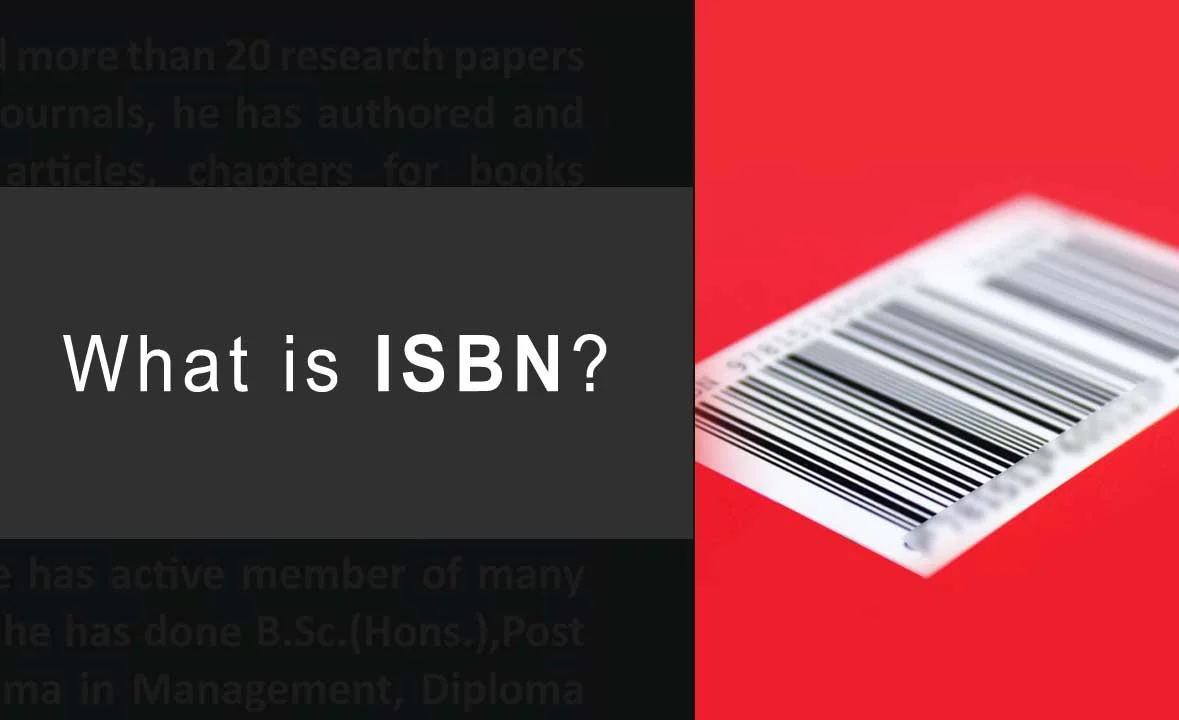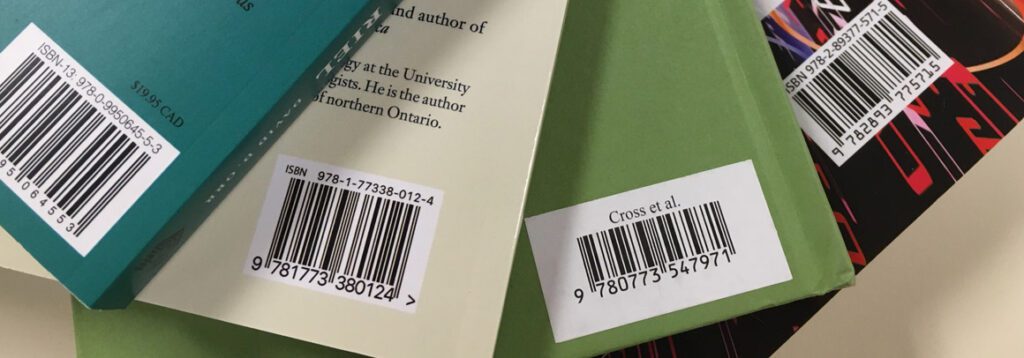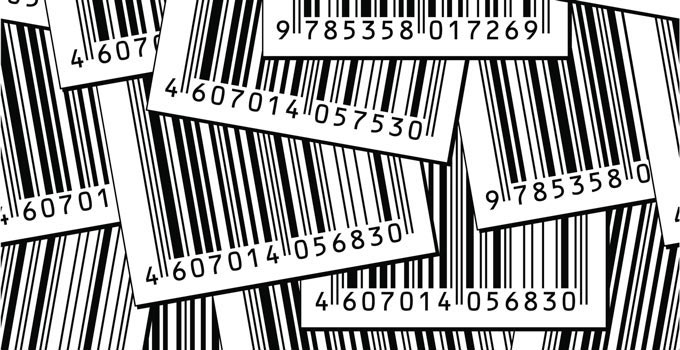
ISBN for Book Identification: Unveiling the Key to Global Recognition and Publishing Success
- by Editone International
- Posted on November 23, 2023
ISBN for Book Identification: Unlocking ISBN Mysteries: Your Ultimate Guide to FAQs on Book Identification
Q: What is the cost of obtaining an ISBN?
A: Authors, publishers, and educational institutions can obtain ISBN numbers free of cost by submitting filled-in relevant forms along with the required documents.
Q: What is an ISSN used for?
A: An ISSN (International Standard Serial Number) is an 8-digit code used to identify newspapers, journals, magazines, and periodicals of all kinds and on all media, including print and electronic.
Q: What does the “978” mean in an ISBN?
A: Prior to 2007, ISBNs were 10 digits long. In January 2007, the 13-digit ISBN was introduced, and all 13-digit ISBNs assigned by the US ISBN Agency use the prefix “978.” This allows systems to accommodate both 10- and 13-digit ISBNs for all books.
Q: Does the ISBN change with the publisher?
A: Yes, the ISBN identifies not only the specific publication but also its publisher. If there is a change of publisher, the new publisher must assign one of their own ISBNs to the new publication.
Q: Do I need a new ISBN?
A: According to US practice, if the book is just out or the goal is to give a marketing boost, a new ISBN may not be necessary. However, if a change in cover substantially alters the product, a new ISBN should be used.
Q: Do all books have an ISBN?
A: An ISBN is a series of numbers on the back cover of a book, and every book published in the United States since 1970 has a 10 or 13-digit ISBN. Books published before that decade may have Standard Book Numbers (SBN) or no identifying numerals.
Q: How old is the ISBN?
A: The ISBN was conceived in 1966 and was put into use just a year later. It gained widespread use in the early 1970s as a standardized system for classifying books.
Q: Who issues ISBNs in India?
A: In India, ISBNs are issued through an ISBN registration agency called Raja Rammohun Roy National Agency (RRRNA), which operates under the administrative control of the Ministry of Education.
Q: What is the limit of an ISBN?
A: The most common format of an ISBN is a 13-digit number, standard since January 2007. However, it can also be 10 digits long. To be considered valid, an ISBN must have either 10 or 13 digits.
Q: Can I sell the copyright of my book?
A: Yes, you can sell the rights to your work, such as selling it as a reprint, to an anthology, or for movie adaptation. However, selling all rights means losing the ability to resell the material to another publisher.
Q: Do ISBN numbers expire?
A: ISBNs can be purchased in advance, and there is no expiration date. They can be registered for titles any time after they are obtained.

Q: Is an ISBN permanent?
A: Yes, the ISBN is a unique and permanent number that identifies a book worldwide.
Q: Why might my ISBN be invalid?
A: Reasons for invalid ISBNs include invalid characters, excessive length, or a 13-digit number that starts with anything other than 978 or 979-10 (as of 2012).
Q: Do websites have ISBNs?
A: Websites are not assigned ISBNs. However, if a publisher needs to identify tracking, trading, and discovery for web-based products, an ISBN can be assigned to the web-based version.
Q: Can I sell my book without an ISBN?
A: If you are selling your printed book on your own, you are not required to have an ISBN. However, for distribution through online retailers, distributors, or catalogs, an ISBN is necessary.
Q: Are ISBN numbers unique?
A: Yes, every book published has a unique ISBN, which is an International Standard Book Number.
Q: What information does an ISBN contain?
A: An ISBN is a 13-digit number that uniquely identifies books and book-like products published internationally. It is intended for monographic publications, including text that stands alone as a product, whether printed, audio, or electronic.
Q: How can I get an ISBN for my book?
A: Authors can obtain an ISBN for free through book printers like KDP Print, BookBaby, or Blurb. Alternatively, they can use their country’s ISBN services or purchase a single ISBN for U.S. publishers from Bowker for $125.
Q: Why is an ISBN needed?
A: The ISBN is necessary for customers to identify and order specific books. Libraries, bookstores, online retailers, distributors, and wholesalers rely on this unique identifier to track purchases and sales.
Q: Is an ISBN free?
A: Authors can choose to use a free ISBN from platforms like KDP, or they can provide their own. However, the free ISBN from KDP can only be used on KDP for distribution to Amazon and its distributors.
Q: Who is the father of the ISBN?
A: The ISBN identification format was conceived in 1967 in the United Kingdom by David Whitaker, regarded as the “Father of the ISBN.” In the United States, it was developed in 1968 by Emery Koltay.
Q: Is an ISBN a copyright?
A: No, while an ISBN makes a book unique in the marketplace, it does not automatically or officially copyright the book.
Q: Can two books have the same ISBN?
A: Although ISBNs are meant to be unique to each title edition, it is surprisingly common for publishers to give the same ISBN to different books. These are known as ‘duplicate ISBNs’ or ‘ISBN duplicates.’
Q: What are the four parts of an ISBN?
A: The four parts of an ISBN include the group or country identifier, which identifies a national or geographic grouping of publishers; the publisher identifier, which identifies a particular publisher within a group; and the title identifier, which identifies a particular title or edition of a title.
Q: What is the difference between ASIN and ISBN?
A: ASINs (Amazon Standard Identification Numbers) are unique blocks of 10 letters and/or numbers used to identify items on Amazon. For books, the Amazon ASIN is the same as the ISBN number, but for other products, a new ASIN is created when the item is uploaded to Amazon’s catalog.
Q: How can I get a cheap ISBN?
A: The third option for acquiring ISBNs is through an ISBN retailer, which buys ISBNs in bulk and sells authors the right to use them individually at a lower cost than the individual ISBN issuers.
Q: Is it easy to self-publish a book?
A: The ease of self-publishing depends on your goals. While it can be a great way to get your book out into the world, it may require a significant investment of time and money, and profitability is not guaranteed.
Q: Is publishing on Kindle free?
A: Yes, it is free to publish on Kindle. Authors do not pay to set up their account or release a book. Amazon receives payment only when a book is sold, and authors receive a royalty based on their book price.
Q: What’s the difference between ISBN 10 and ISBN 13?
A: ISBNs were 10 digits long for more than thirty years, but on January 1, 2007, the ISBN system switched to a 13-digit format. All ISBNs are now 13 digits long, but if assigned 10-digit ISBNs, they can be converted to the 13-digit format.
Q: How much does an ISBN cost in India?
A: No fee is charged for applying for an ISBN in India.
Q: Can I publish my book without copyright?
A: Under U.S. copyright law, self-published work is protected as soon as it is created. Copyright is based on creative authorship and is not dependent on any formal agreement with a publisher or self-publishing company.
Q: Does Amazon need an ISBN?
A: Authors can choose to use their own ISBN or publish without one on Amazon. If published without an ISBN, Amazon will automatically assign an ASIN (Amazon Standard Identification Number) for the book.
Q: Can I edit my ISBN information?
A: Once a book is published, the ISBN cannot be changed. If changes are needed, the book should be republished as a new submission with a new ISBN.
Q: Can an ISBN be deleted?
A: No, an ISBN cannot be changed once assigned, and it is associated with a book’s trim size, title, and author name.
Q: Do ebooks need a barcode?
A: No, ebooks do not need a barcode. While print books require a barcode, most self-publishing platforms provide it, and the ISBN is shown on the barcode. However, it’s important to note that barcodes are not ISBNs.

Q: How do I check if an ISBN is valid?
A: If the ISBN is 10 digits long, the total must be divisible by 11. If it is 13 digits long, the total must be divisible by 10. If not divisible, the ISBN is considered invalid.
Q: Can I apply for an ISBN online?
A: Yes, applicants can visit the ISBN Agency website, select ‘Applicant Registration,’ and fill out the form providing the applicant type and publisher type.
Q: Can anyone buy an ISBN?
A: An ISBN is issued to publishers or authors by their local ISBN agency for self-publishing purposes and is required worldwide for books available to the public.
Q: Can I buy an ISBN number?
A: Purchasing an ISBN is necessary if planning to sell a book in retail outlets or online. For self-published authors, the decision to register as a publisher and buy ISBNs is optional.
https://www.youtube.com/@editoneinternationalpvtltd3570
ISBN for Book Identification: Unlocking ISBN Mysteries: Your Ultimate Guide to FAQs on Book Identification Q: What is the cost of obtaining an ISBN? A: Authors, publishers, and educational institutions can obtain ISBN numbers free of cost by submitting filled-in relevant forms along with the required documents. Q: What is an ISSN used for? A:…
